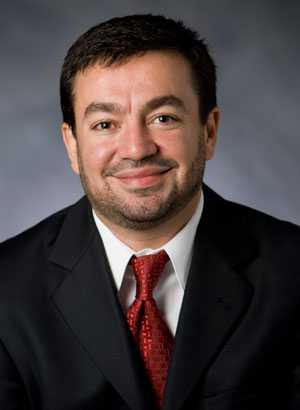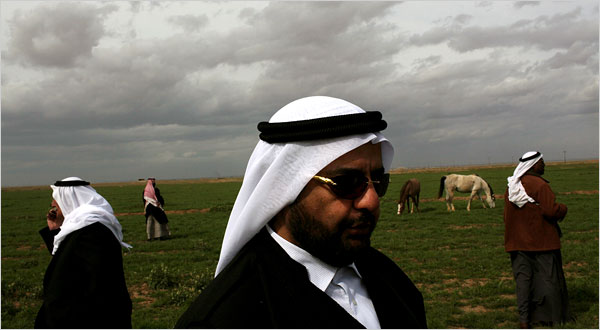Andrew Silow-Carroll
NJJN Editor-in-Chief
April 9, 2009
 I was exchanging e-mails recently with a reader about a column I wrote defending endogamy — that is, marriage between two Jews. “A bigot is one strongly loyal to one’s own social group, yet irrationally and prejudicially intolerant or disdainful of others,” he wrote. “If this paper’s chief editor is not a bigot — as he hopes — after reading this [column], I’m left wondering what he thinks he is.”
I was exchanging e-mails recently with a reader about a column I wrote defending endogamy — that is, marriage between two Jews. “A bigot is one strongly loyal to one’s own social group, yet irrationally and prejudicially intolerant or disdainful of others,” he wrote. “If this paper’s chief editor is not a bigot — as he hopes — after reading this [column], I’m left wondering what he thinks he is.”
I don’t think I am intolerant of anything, unless you count lactose.
But his question continues to nag at me: Why does any culture value its own transmission, and can I justify the Jewish obsession with continuity in an era of multiple identities and, the flip side, violent tribalism?
In my defense, I quoted the work of K. David Harrison, a linguist who studies dying languages. According to his Enduring Voices Project, “Nearly 80 percent of the world’s population speaks only one percent of its languages. When the last speaker of a language dies, the world loses the knowledge that was contained in that language.”
By extension, Judaism is a culture with a rich language — not just Hebrew or Yiddish but a language of ritual, of social norms, of worship, of behaviors that order its practitioners’ world — in short, a rich system of knowledge. To dedicate oneself to preserving that shows no disdain for other cultures. Consider: When colonial powers try to wipe away traces of an indigenous culture, we call it ethnic cleansing. When Jews seek other Jews in order to live as rich a Jewish life as possible, some call it bigotry.
Soon after this exchange I came upon Ariel Sabar’s beautiful new book, My Father’s Paradise: A Son’s Search for His Jewish Past in Kurdish Iraq. Sabar’s father, Yona, is the world’s preeminent expert on Neo-Aramaic, the language he grew up speaking in the Jewish quarter of Zakho, a Kurdish market town in northern Iraq. The book traces Yona’s journey from Kurdistan to Israel to southern California, where he is a professor at UCLA.
The book is an American-born, journalist son’s attempt to reconnect with a father he once dismissed as an awkward, hopelessly uncool immigrant. But it is also a rumination on language and Jewish culture, and the ways, and worth, of trying to preserve both.
For perhaps 1,700 years and until the seventh-century rise of Arabic, Aramaic was to the Levant what English is to the modern world: its lingua franca. The language lives on in the Talmud, the Zohar, the traditional wedding ketuba, and other texts. You hear it in the Mourner’s Kaddish and the Kol Nidrei prayer chanted on Yom Kippur eve.
But “lives” is a relative term — Aramaic began disappearing as a living Jewish language with the immigration of Iraq’s small Kurdish-Jewish community to Israel in the 1950s. Like Yona Sabar, Kurdish Jews made a lightning leap from the 18th century to the 20th, and the language barely made the crossing.
Ariel Sabar recreates the lost Jewish world of Zakho, where his hard-working grandparents thrived as dyers and textile merchants. Israel is a shock, and Yona’s parents and grandfather are adrift in the ramshackle tent cities and slums built to accommodate the flood of new immigrants. As Kurds, they occupy perhaps the lowest rung on Israel’s strict ladder of ethnic hierarchy. (One of the book’s heroes is Itzhak Ben-Zvi, Israel’s second president, an Ashkenazi Jew who championed the study and preservation of “Oriental” Jewish cultures.)
Out of this world Yona emerges as an unlikely scholar at Hebrew University with a rare distinction: fluency in a language that other scholars know only from the synagogue and dusty manuscripts. He soon lands at Yale and eventually becomes a lionized academic and teacher in Los Angeles. Writes Ariel: “Teaching Aramaic in America, I came to see, was how he sang God’s song in a strange land.”
Ariel, meanwhile, grows up a typical California kid, embarrassed by his father’s eccentricities and distant from his plucked Jewish roots. Ariel marries a non-Jewish woman and, while he pledges to raise their son as a Jew, disappoints the family by refusing to have the boy circumcised.
And here a reader is tempted to cluck his tongue and lament the withering of another branch on the Jewish family tree. But there is something cannier and more surprising going on in My Father’s Paradise. Ariel thinks long and hard about what we owe the past, and the future. He can’t live his father’s life, any more than his father can live in the dusty alleyways of Zakho. But he can tell the story of the Kurdish Jews, of Aramaic, and of his father’s heroic efforts to remember both.
Ariel Sabar made his choices; you and I might make others. His book suggests the various ways we can embrace diversity while adding new chapters to the cultures we inherit.
“Jews had carried a flame into the hills of Kurdistan, and they carried it out, still burning, 2,700 years later,” he writes. “My father touched another candle to it and brought it across continents. I didn’t want it to die with me. If my children ever feel adrift, unsure of who they are, I want that candle to still be burning.”
Comment: [email protected]
Source: www.njjewishnews.com, April 9, 2009






 Jehad Nga for The New York Times Sheik Abdullah Humedi Ajeel al-Yawar, seen with his Arabian horses, mobilized tribes in January to help Sunni Arabs gain control of Nineveh’s provincial council.
Jehad Nga for The New York Times Sheik Abdullah Humedi Ajeel al-Yawar, seen with his Arabian horses, mobilized tribes in January to help Sunni Arabs gain control of Nineveh’s provincial council. Interactive Graphic
Interactive Graphic  The New York Times
The New York Times